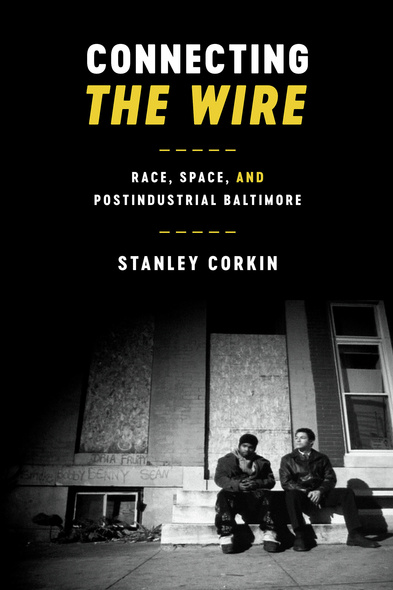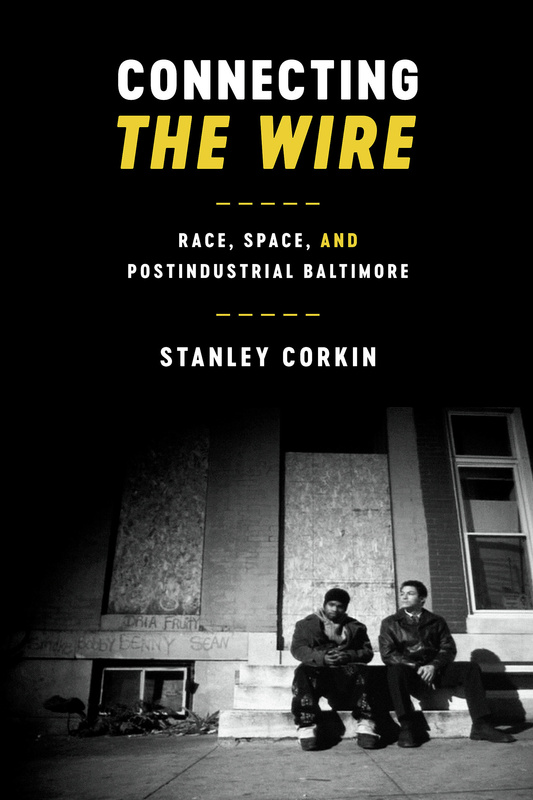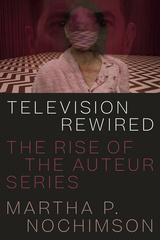
Connecting The Wire
Race, Space, and Postindustrial Baltimore
Critically acclaimed as one of the best television shows ever produced, the HBO series The Wire (2002–2008) is a landmark event in television history, offering a raw and dramatically compelling vision of the teeming drug trade and the vitality of life in the abandoned spaces of the postindustrial United States. With a sprawling narrative that dramatizes the intersections of race, urban history, and the neoliberal moment, The Wire offers an intricate critique of a society riven by racism and inequality.
In Connecting The Wire, Stanley Corkin presents the first comprehensive, season-by-season analysis of the entire series. Focusing on the show’s depictions of the built environment of the city of Baltimore and the geographic dimensions of race and class, he analyzes how The Wire’s creator and showrunner, David Simon, uses the show to develop a social vision of its historical moment, as well as a device for critiquing many social “givens.” In The Wire’s gritty portrayals of drug dealers, cops, longshoremen, school officials and students, and members of the judicial system, Corkin maps a web of relationships and forces that define urban social life, and the lives of the urban underclass in particular, in the early twenty-first century. He makes a compelling case that, with its embedded history of race and race relations in the United States, The Wire is perhaps the most sustained and articulate exploration of urban life in contemporary popular culture.
[A] smart, engaging book-length examination . . . . Stanley Corkin, in his deep analysis, approaches David Simon’s masterful series from a media studies perspective without losing any of the sociological focus.
Despite The Wire’s run on HBO ending in 2008, many of the themes and topics examined are still relevant today. . . Connecting the Wire provides a comprehensive resource for utilizing the HBO series as a device for further geographic, sociological, and media studies research and discussions. Whether a loyal viewer of the series while it aired, or someone only vaguely familiar with the show (which can easily still be binged watched today), Corkin’s treatment of the television show provides depth, insight and context for what the back cover touts as ‘critically acclaimed as one of the best television shows ever produced.'
A careful analysis of the popular HBO television series The Wire...Connecting the Wire is an important read for…scholars of race, poverty and urban inequality. Corkin works to analyze The Wire in the context of some of the important discussions about deindustrialization and urban decline. Connecting the Wire is also an important tool or those who teach in this area.
In reading Stanley Corkin’s book, one can fully understand why HBO’s The Wire successfully used the freedom of artistic expression to deftly weave together the range of social forces that profoundly impact the lives of poor inner-city residents, including the fundamental features of inequality in our social, economic, and political arrangements. As someone who has watched every episode of The Wire at least four times, I can say that Corkin’s comprehensive discussion of this remarkable television series is insightful and compelling.
- Acknowledgments
- Introduction
- One. Season 1: Drugs, Race, and the Structures of Social Immobility
- Two. Season 2: The Wire, the Waterfront, and the Ravages of Neoliberalism
- Three. Season 3: Drugs, Space, and Redevelopment
- Four. Season 4: A Neoliberal Education: Space, Knowledge, and Schooling
- Five. Season 5: The Demise of the Public Sphere—News, Lies, and Policing
- Conclusion: The Wire and the New Dawn (Maybe)
- Notes
- Bibliography
- Index






